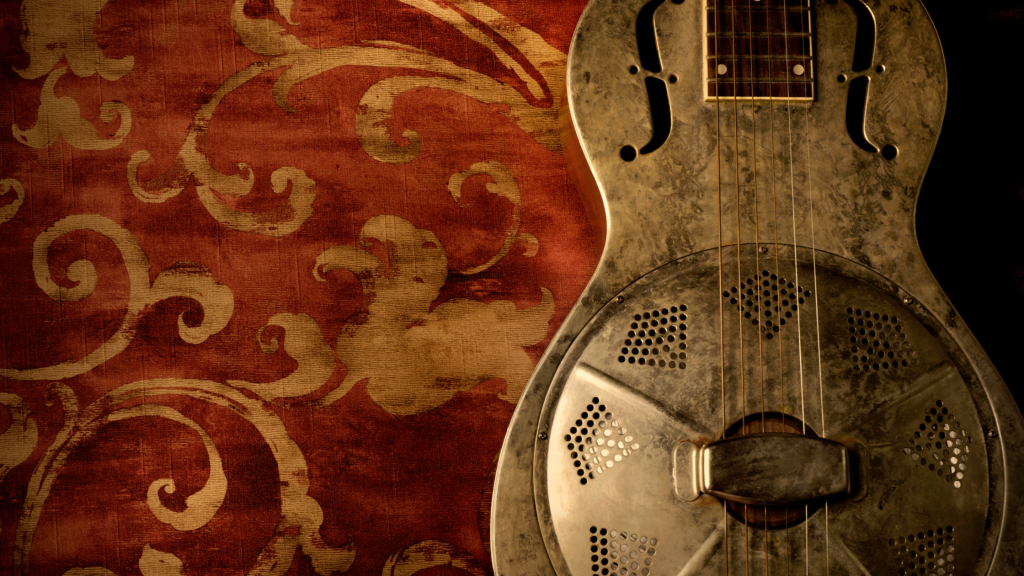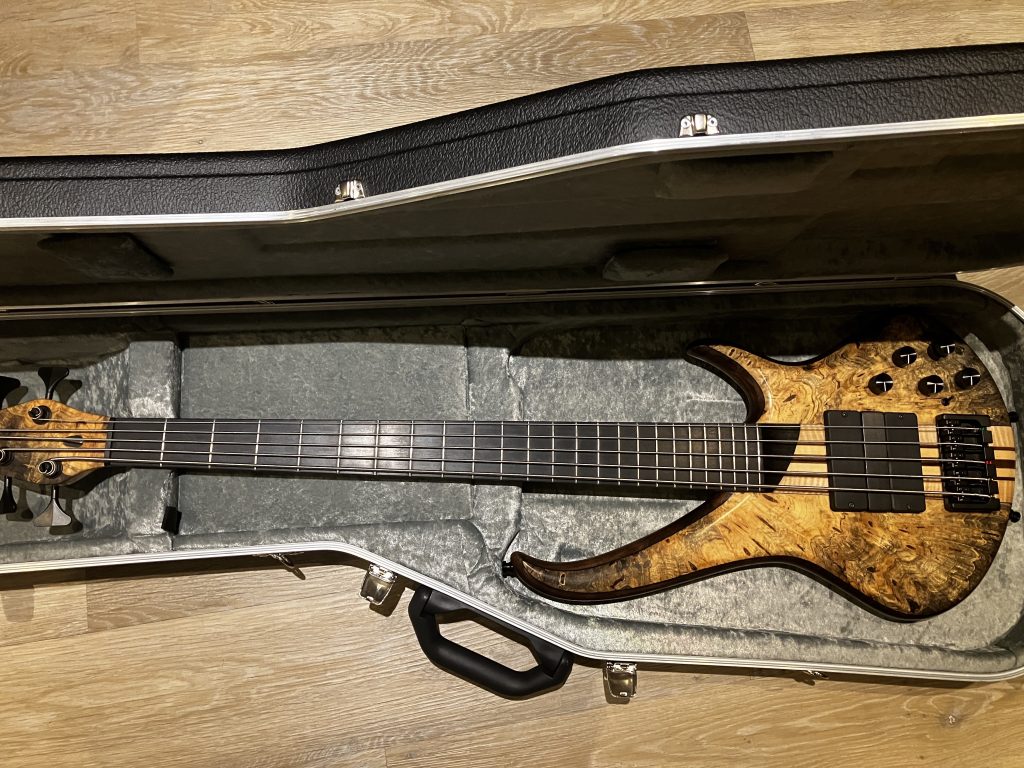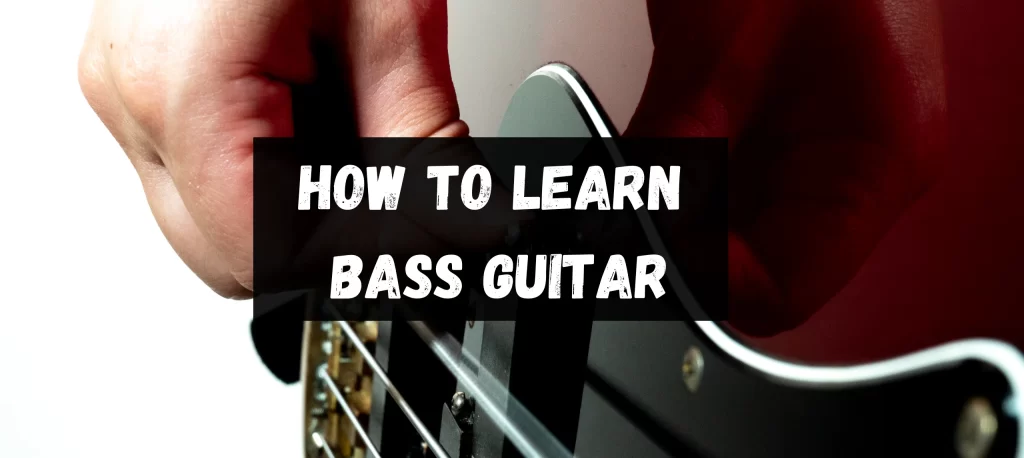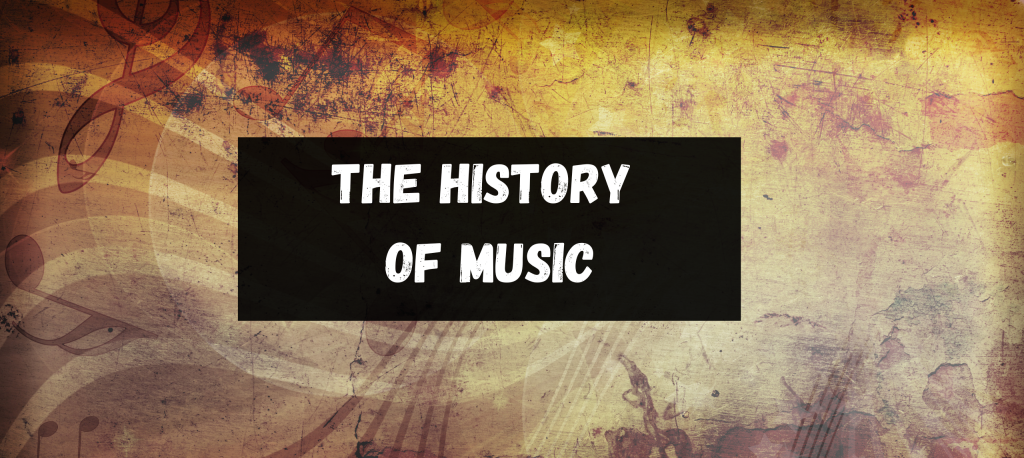August 22, 2023
Howard
Delta Blues is a genre of American blues music that originated in the Mississippi Delta region. Characterised by its raw emotion, distinct guitar fingerpicking style, and soulful vocals, it often explores themes of hardship and longing. The style became a foundational element for many forms of American music, influencing rock, jazz, and other blues subgenres.
In this illuminating exploration, we’ll traverse the fertile grounds of the Delta to uncover the birth, evolution, and profound influence of Delta Blues. From its humble origins to the electric surge of Chicago Blues, the story of Delta Blues is a captivating journey filled with twists, turns, and vibrant melodies. Stay with us as we delve deep into the heart of a genre that transcends music, echoing the very soul of American culture.
Tracing the Roots: Understanding the Beginnings
Origins and Early Influences
Delta Blues, a genre that emerged from a harmonious collision of African rhythms and European melodies, is a poignant testament to the American experience. Work songs, spirituals, and folk tunes intertwined like threads of a diverse tapestry, weaving a musical narrative that resonated with the struggle and hope that defined life at the time. This convergence of cultures formed the foundation upon which the Delta Blues would be built.
- The fusion of African and European musical elements gave rise to a sound that embodied the essence of the Delta region.
- Work songs and spirituals, often rooted in the struggles of enslaved African-Americans, contributed to the emotional depth of the genre.
- Folk traditions from Europe provided harmonic structures and lyrical themes, shaping the distinctive storytelling of Delta Blues.
Pioneers and Key Artists
As the Delta Blues gained momentum, a select group of pioneers emerged, each possessing a unique ability to translate life’s hardships into raw, soulful poetry. Artists such as Robert Johnson, Charley Patton, and Son House captured the essence of the Delta Blues through their emotive vocals and masterful guitar skills. Their contributions went beyond personal expression, resonating with the collective aspirations of their generation.
- Robert Johnson’s haunting vocals and intricate guitar work set a benchmark for the genre’s emotional intensity and technical prowess.
- Charley Patton’s energetic performances and dynamic playing style established him as a trailblazing figure in the Delta Blues scene.
- Son House’s powerful voice and profound lyrics captured the heartache and longing that defined Delta Blues’ narratives.
Dockery Farms: The ‘First School of Blues’
Within the sprawling expanse of Dockery Farms, something extraordinary was brewing. Often referred to as the ‘First School of Blues’, this cotton plantation transcended its agricultural purpose to become a crucible of musical innovation. Amidst the rhythms of labour and dreams, musicians found a fertile ground to nurture their artistry, and the legacy of Dockery Farms remains a testament to the transformative power of adversity.
- Dockery Farms, blending agricultural labour and cultural exchange, became a breeding ground for musical creativity.
- Musicians who honed their skills at Dockery Farms became influential figures in the Delta Blues genre.
- The environment of Dockery Farms exemplifies the intrinsic connection between music and life’s experiences, giving birth to a genre that would resonate through the ages.
The Connection to Mississippi
The Mississippi Delta, a region of rich landscapes and complex history, provided the backdrop against which the Delta Blues narrative unfolded. This connection between the music and the land goes beyond the mere geographical, embedding itself deeply in the cultural identity of both the genre and the region.
- The Mississippi Delta’s fertile lands and meandering waters became a source of inspiration for the Delta Blues’ emotional resonance.
- The genre’s themes of struggle, migration, and resilience were mirrored in the history of the Delta region itself.
- The symbiotic relationship between Delta Blues and Mississippi created a musical legacy that continues to shape the region’s cultural fabric.
Musical Attributes: The Signature Sound of Delta Blues
Acoustic and Instrumental Elements
The soulful heartbeat of Delta Blues rests upon a distinctive blend of acoustic mastery and instrumental nuances. This section delves into the very fabric of this sound, unravelling its components and unveiling the artistry that defines it.

Types of Guitars Used
- Resonator guitars, often known as “Dobros,” with their metal cones that amplify the sound, are a hallmark of the Delta Blues.
- Early blues musicians favoured acoustic guitars with steel strings for their bright, cutting tones.
- The use of slide techniques, where a glass or metal slide is slid across the strings, creates the iconic haunting sound.
Delta Blues Style and Techniques
- The Delta Blues style is characterized by its rhythmic complexity, incorporating syncopated rhythms and intricate fingerpicking.
- Artists would often alternate between bass notes and melody lines, creating a rich and layered sound.
- Techniques like bottleneck slide and fingerpicking patterns add depth and emotion to the storytelling.
Fingerstyle Delta Blues Guitar
- Fingerstyle playing is a cornerstone of Delta Blues, where each finger plucks individual strings, resulting in a dynamic and expressive sound.
- This technique allows musicians to simultaneously play basslines, melodies, and rhythms, producing a full and intricate texture.
- The fingerstyle approach contributes to the genre’s intimacy, enabling artists to convey their emotions with every pluck.
Delta Blues vs. Chicago Blues: A Comparative Analysis
While both Delta Blues and Chicago Blues share a common lineage, they’ve evolved into distinct sounds that mirror the environments from which they sprung. This analysis sheds light on the nuanced differences that set them apart.
Acoustic Characteristics
- Delta Blues retains its rustic, intimate quality with its reliance on acoustic instruments and raw, unfiltered sound.
- Chicago Blues, on the other hand, embraces electrification, incorporating amplified guitars and harmonicas for a more urban and robust resonance.
Cultural Significance
- Delta Blues captures the essence of rural life, reflecting the struggles and joys of plantation workers and migrant communities.
- Chicago Blues, emerging in the urban landscape, speaks to the complexities of city life, migration, and the changing dynamics of African-American communities.
This exploration into the musical attributes of Delta Blues offers a glimpse into the delicate interplay of instruments, techniques, and cultural context that have shaped its unmistakable sound.
A Cultural Phenomenon: Delta Blues’ Growth and Evolution
The Growth of the Genre
The roots of Delta Blues spread like ivy, intertwining with the history of the American South. This section traces the genre’s remarkable journey from its humble origins to becoming a cultural phenomenon that captivated hearts across the world.
- The early days of Delta Blues were marked by itinerant musicians sharing their stories through impromptu performances on street corners and at local gatherings.
- As the genre gained recognition, artists started performing at juke joints, small music venues where the lively rhythm of the blues transformed these spaces into cultural hubs.
- The growth of Delta Blues saw the emergence of recording opportunities, giving artists a chance to immortalize their music on shellac records.
Evolution into Modern Times
Delta Blues, like a river carving its path through time, adapted to changing currents while retaining its essence. This evolution is a tale of how tradition and innovation entwine to create a vibrant musical legacy.
- The post-war era witnessed a revival of interest in Delta Blues as a new generation of artists discovered and embraced its authentic and emotional sound.
- Modern amplification and recording technologies breathed new life into the genre, allowing it to reach wider audiences and evolve without losing its intimate character.
- Delta Blues became a source of inspiration for subsequent musical genres, from rock ‘n’ roll to contemporary folk music, leaving an indelible mark on the global musical landscape.
First Songs Pressed on Vinyl
The crackling nostalgia of a vinyl record spinning is intimately tied to the history of Delta Blues. This section invites you to a moment when music made its mark on wax, forever transforming the way we experience sound.
- The recording industry’s early days were met with Delta Blues artists entering studios to lay down their heartfelt melodies, creating the first sonic imprints of this soul-stirring genre.
- The release of records allowed these artists’ voices to resonate beyond their immediate surroundings, introducing Delta Blues to a wider audience eager for its emotional authenticity.
- These vinyl records captured not only the music but also the essence of an era, connecting listeners across distances and generations.
Influence on Jazz: Juke Joints as Jazz Clubs of the South
The rhythm of Delta Blues didn’t just echo within its own domain; it played a pivotal role in shaping the landscape of jazz in the American South. This section delves into the intriguing connection between Delta Blues and the evolution of jazz culture.
- Juke joints, where the Delta Blues flourished, also served as breeding grounds for jazz innovation, functioning as informal jazz clubs in the South.
- The infectious energy and improvisational spirit of the Delta Blues found resonance in the jazz scene, contributing to the birth of jazz’s improvisational nature.
- The intimate settings of these juke joints provided a unique environment where the boundaries between the two genres blurred, fostering an atmosphere of musical exploration and collaboration.
As we explore the growth, evolution, and cultural crossroads of Delta Blues, we uncover the intricate threads that have woven it into the rich tapestry of American music history.
Impact and Legacy: How Delta Blues Shaped American Music
Influence on Contemporary Music Genres
The echoes of Delta Blues reverberate through time, their impact transcending genres and generations. This section illuminates the profound influence that this soul-stirring sound has had on shaping the diverse musical landscape of America.
- Rock ‘n’ Roll: The electrifying energy of Delta Blues paved the way for rock ‘n’ roll’s birth, infusing it with raw emotion and the spirit of rebellion.
- Folk Music: The storytelling nature of Delta Blues found kinship in the folk music revival, influencing artists like Bob Dylan and Joan Baez.
- Country Music: The bluesy undertones of Delta Blues can be heard in the heartfelt narratives and expressive melodies of country music’s earliest stars.
Delta Blues as a Cultural Explosion
Delta Blues’s emergence marked a musical revolution and a cultural explosion that transformed society’s perception of music, race, and expression.
- Challenging Norms: Delta Blues challenged societal norms, giving a voice to marginalised communities and shedding light on the struggles of African-Americans in the South.
- Crossing Boundaries: The genre’s emotional resonance transcended racial and geographic boundaries, fostering connections between disparate communities and cultures.
Continuing Influence on Today’s Music
The legacy of Delta Blues endures in contemporary music, as artists continue to draw inspiration from its emotional depth and storytelling prowess.
- Blues Revival: The 21st century has witnessed a revival of interest in Delta Blues, with contemporary artists embracing its authenticity and infusing it with modern sensibilities.
- Popular Culture: Elements of Delta Blues can be heard in pop, rock, and hip-hop, testifying to its enduring appeal and its ability to adapt and evolve.
As we delve into the impact and legacy of Delta Blues, we uncover the web of connections that bind its influence to the heart of American music, resonating through time and genre.
Exploring Delta Blues Today
Highlighting Delta Blues Artists
The soulful strains of Delta Blues continue to thrive in the modern era, carried forth by a new generation of talented artists who pay homage to the genre’s rich history while infusing it with their unique voices.
- Rory Block: A contemporary Delta Blues artist whose masterful guitar work and powerful vocals evoke the spirit of the genre’s early pioneers.
- Taj Mahal: With a fusion of Delta Blues, folk, and world music influences, Taj Mahal’s music embodies the genre’s global impact.
Must-Listen Delta Blues Albums and Songs
For those eager to embark on a sonic journey through the Delta Blues landscape, some specific albums and songs stand as essential touchstones, capturing the essence of the genre’s legacy.
- “King of the Delta Blues Singers” by Robert Johnson: A seminal collection that showcases Robert Johnson’s haunting vocals and influential guitar style.
- “At Newport” by Muddy Waters: This live recording captures Muddy Waters’ dynamic stage presence and is a testament to his impact on the blues.
Connection with Other Musical Styles within Delta Blues
The Delta Blues universe is rich and diverse, encompassing a variety of musical styles that collectively contribute to its unique tapestry.
- Gospel and Spiritual Influences: Gospel and spiritual music provided the foundation for the emotional depth and vocal stylings that define Delta Blues.
- Ragtime and Jazz: The syncopated rhythms of ragtime and the improvisational nature of jazz interwoven with Delta Blues, contributing to its rhythmic complexity.
In the world of Delta Blues today, artists pay homage to its roots, albums become vessels of history, and the genre’s interplay with other styles reveals the richness of its legacy.
The Broader Spectrum: Social and Cultural Relevance
Reflections on the Social Perception of Delta Blues
The resonance of Delta Blues extends beyond its musical notes, reflecting the social fabric of its time and offering insights into the challenges and triumphs of its creators. This section delves into the intricate interplay between music and society.
- The Delta Blues emerged from the experiences of African-Americans in the South, providing a raw and unfiltered lens through which to view their struggles and resilience.
- The genre’s exploration of themes such as poverty, injustice, and migration shed light on the social realities of the time, creating a sonic narrative of history.
Delta Blues and Cultural Movements
Delta Blues isn’t just music; it’s a cultural force that has intersected with and contributed to broader movements that shaped American society.
- The Civil Rights Movement drew inspiration from the emotional power of Delta Blues, using its messages of empowerment and resistance as rallying cries.
- The counterculture of the 1960s embraced Delta Blues as a means to challenge established norms and promote messages of peace and equality.
Language and Global Reach (e.g., Crossing Language Barriers with Jazz Education in Asia)
Music, as a universal language, can transcend linguistic barriers. This section explores how Delta Blues and its influence have traversed oceans and cultures.
- Delta Blues’ emotive sound speaks to audiences worldwide, transcending language differences and forging connections through shared emotions.
- The global reach of Delta Blues is exemplified by its influence on jazz education in Asia, where the genre’s essence is embraced and woven into local musical tapestries.
In examining the broader social and cultural relevance of Delta Blues, we discover that its impact extends far beyond the realm of music, touching upon the intricate threads of history, society, and human connection.
Final Notes: Continuing the Journey with Delta Blues
Recommendations for Exploration (Albums, Artists, Venues)
As you wrap up this exploration of Delta Blues, the journey doesn’t have to end here. Here are some recommendations to further immerse yourself in the soul-stirring world of this genre.
Albums to Listen to:
- “The Complete Recordings” by Robert Johnson: A treasure trove of Johnson’s evocative vocals and innovative guitar work.
- “Martin Scorsese Presents the Blues: A Musical Journey” (Compilation): A diverse collection highlighting the genre’s evolution.
Artists to Discover:
- Mississippi John Hurt: A gentle voice and intricate fingerpicking make him a Delta Blues luminary.
- Skip James: His haunting vocals and unique tunings create a captivating sonic experience.
Venues to Experience:
- Clarksdale, Mississippi: The historic crossroads town is a hub of Delta Blues heritage, offering live performances and interactive exhibits.
- The Bluebird Café, Nashville: This intimate venue celebrates acoustic music, offering a platform for emerging Delta Blues-inspired artists.
Reflection on Why Delta Blues Still Resonates Today
The timeless allure of Delta Blues lies in its ability to capture the raw human experience, transcending time and space. Even in the digital age, its emotional authenticity remains a powerful force.
- The genre’s heartfelt narratives continue to speak to universal themes of love, loss, and resilience that resonate with listeners from all walks of life.
- The unvarnished nature of Delta Blues allows it to cut through the noise of the modern world, offering solace and understanding in a chaotic landscape.
Encouraging Continued Appreciation and Study
As we bid farewell to this exploration, let’s consider how we can ensure Delta Blues remains a living testament to the past and a source of inspiration for the future.
- Engage in local music scenes that celebrate the spirit of Delta Blues, supporting artists who keep the genre alive through their performances and recordings.
- Explore the rich history and cultural context of Delta Blues through books, documentaries, and educational programs, ensuring its legacy is passed on to new generations.
In the final notes of this journey, remember that Delta Blues’ melody lingers in the air, waiting to be rediscovered by those who seek the magic of its soulful storytelling.
But, what is blues music?
These Might Tickle Your Fancy!

Howard Head
I turn confused bass enthusiasts into bass gods through a simple and logical process.

















